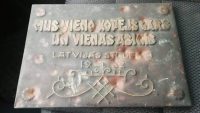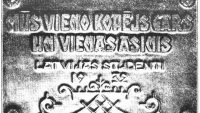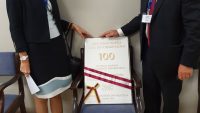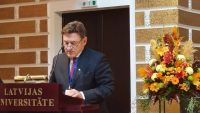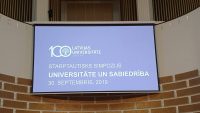Bronze Memorial Plaque Gifted by Latvia’s Students Returned to VMU
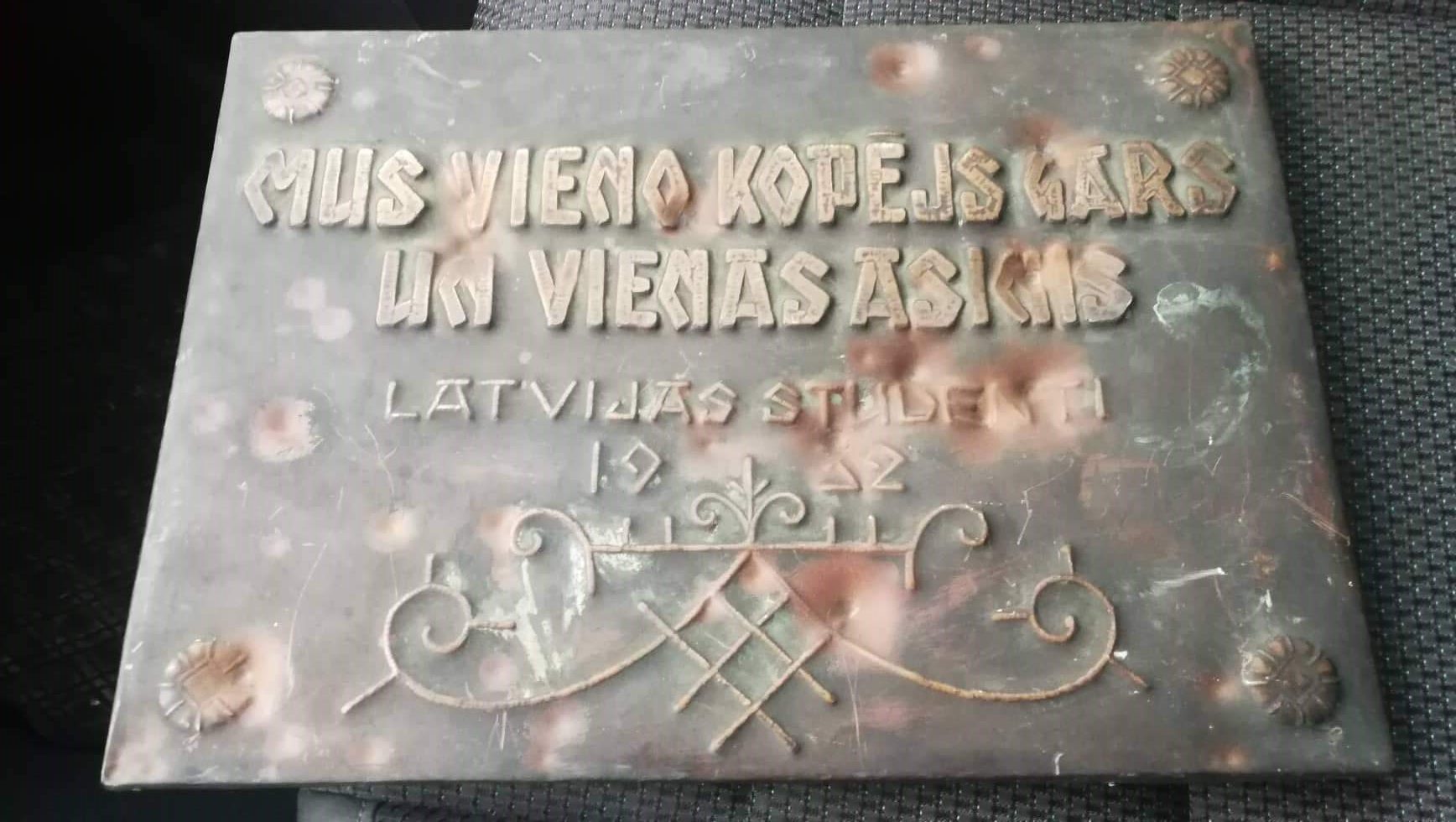
In 1932, when Vytautas Magnus University celebrated its 10th birthday, it received a special gift from Latvian students: a bronze memorial plaque with a Latvian inscription: “Mūs vienuo kuopėjs gars un vienas asinis” (“We are united by common spirit and one blood”). Even though this plaque was lost during World War II, last autumn a lucky coincidence brought it back to its rightful place: to VMU. According to one of the organizers of the search, the founder of VMU Centre of Letonics, Prof. Dr. Alvydas Butkus, maintaining a friendship between the two Balt nations is very important.
The professor placed an ad in a newspaper about the missing bronze plaque more than a decade ago; however, it was discovered only recently. “The plaque’s former owner found it accidentally: he purchased it from a collector of various antiques. It turned out that he had seen the ad about us looking for this plaque and informed me about it. Thanks to this person, the plaque has returned to where it belongs, to the university. We are now waiting for the opportunity to present it to the public”, Prof. Butkus explained.
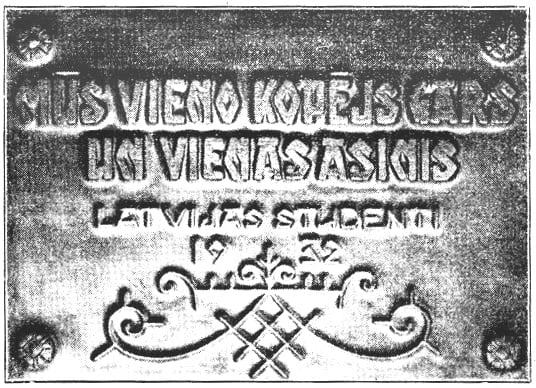
Bronze memorial plaque presented by students from Latvia (1932)
A kinship which is hard to describe
Prof. Alvydas Butkus noted that, on 16 February 1932, VMU celebrated the 10th anniversary of its establishment. “Marking the occasion, a delegation of students from Latvia had arrived to Lithuania and gifted this memorial plaque to the university. However, it disappeared during World War II: someone probably stole it. We only found out about the plaque’s existence from the press of the time. That’s when we decided to look for it”, the professor said. The search took a long time, inquiries were sent to many museums, but to no avail. “Then we announced the search in the Lithuanian media. And, this year, a small miracle happened: the plaque appeared when we had already lost hope”, Professor Butkus elaborated.
According to the professor, the symbolic memorial plaque’s inscription reflects the Latvians’ wish to emphasize that Lithuanians and Latvians are the sole remaining closest relatives of one another. “Interestingly, when the University of Latvia marked its 100th anniversary last year, VMU took the initiative to make an analogous modern plaque with the same inscription: “We are united by common spirit and one blood”. During the festivities, this plaque was gifted to the University of Latvia”, Prof. Butkus remembered.
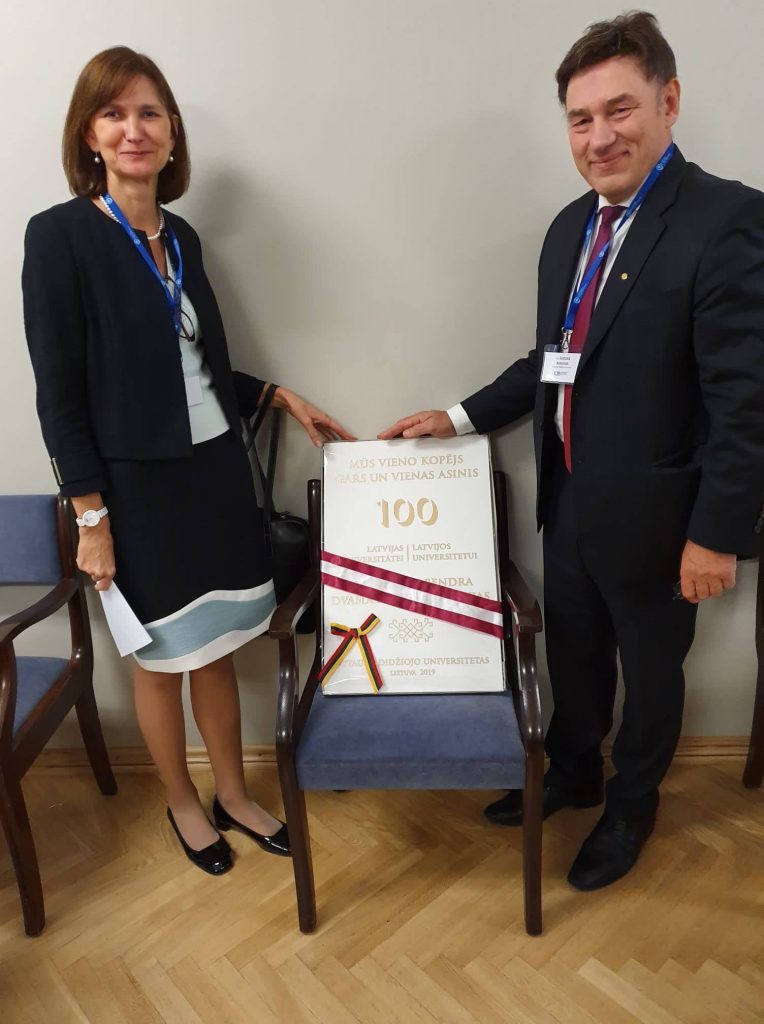
VMU Vice-Rector for International Relations Prof. Ineta Dabašinskienė and VMU Rector Prof. Juozas Augutis on the eve of the University of Latvia’s 100th anniversary celebration (2019)
The founder of the VMU Centre of Letonics pointed out that the inscription makes this plaque unique. “Lithuanians like to emphasise that Latvians are our brothers. It may seem to us that our neighbours keep a distance and gravitate more toward the Estonians, as historically Livonia was ruled by Germans during the Middle Ages and ethnically its population was mainly Latvian and Estonian. In the 13th and 14th century, the area which is now northern Lithuania and southern Latvia was inhabited not by Lithuanians and Latvians, but by the Curonians, Semigallians, and Selonians. Later, the southern Curonian area was assimilated by Lithuanians, while the northern – Semigallian – area was assimilated by Latvians. Finally, Latvians are mostly Lutheran, while Lithuanians are Catholic, which would seem to impede the affinity as well. However, in this case, Latvians recognize the kind of affinity which the Lithuanians themselves were not able to define. “Common spirit and one blood”: what could be better? This is why we wanted to get this memorial plaque back”, the professor explained.
To uncover a country through its people
In 2019, VMU Centre of Letonics marked the 25th anniversary of its activities. The centre’s founder Alvydas Butkus remarked that, while relations with the University of Latvia and other Latvian higher education institutions began in 1991, the first steps of cooperation began almost 100 years ago. “Picture this: we did not have Vilnius, the University of Lithuania was founded in Kaunas in 1922, while in 1919 the University of Latvia was founded in Riga. Each country had only one university. So it is not surprising that the institutions cooperated closely. At the time, a group of Latvian students studied at VMU, they even had a corporation called Sidrabenia”, he recalled.
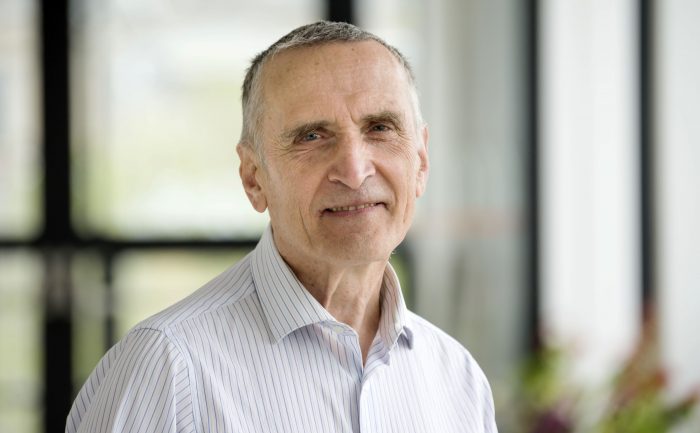
Prof. Dr. Alvydas Butkus
According to the professor, the VMU Centre of Letonics had several key goals. It sought to establish relations with Latvia’s higher education institutions: not just the University of Latvia, but also the Academy of Culture, the universities of Daugavpils and Liepāja, the Rēzekne higher education institution. The cooperation sought to encourage exchange of students and lecturers between the two nations. As a counterpart of the Centre of Letonics in Kaunas, an analogous Centre of Lithuanian Studies was founded in Riga.
Another task of the Centre of Letonics is to provide access to learning Latvian language in Lithuania: it started publishing various literature on Latvia, dictionaries and textbooks. However, Prof. Alvydas Butkus noted that one of the centre’s key goals was to present Latvia to the Lithuanian public through the people who studied in Lithuania and the Lithuanian students who continued their activities in Latvia.
“In 2005, we organized the first Forum of Lithuania and Latvia at VMU, in cooperation with Lithuania’s Ministry of Foreign Affairs. A large delegation of Latvian intellectuals attended it. Afterwards, it was decided to establish an Association of Lithuanian-Latvian Forums, which organizes gatherings in both countries and aims to not just consolidate bilateral cooperation in narrow segments of society but to spread ideas as widely as possible. For instance, we aim for Latvian television to be accessible in Lithuania, and vice versa. We want to encourage for Latvian language to be more visible in our society; after all, what is the purpose of learning a language if you cannot use it? Unfortunately, we still feel that the Latvian and Lithuanian societies are isolated from one another; but we do not intend to stop our efforts”, Professor Butkus said.
“A message must be spread about the relations between Latvia and Lithuania. For example, Slavic and German nations have a wide choice of who to communicate with, there are many of them. We do not have a wide choice, the remaining Balts are just Lithuanians and Latvians. So we must talk to one another and remember to maintain our relations”, the professor opined.

